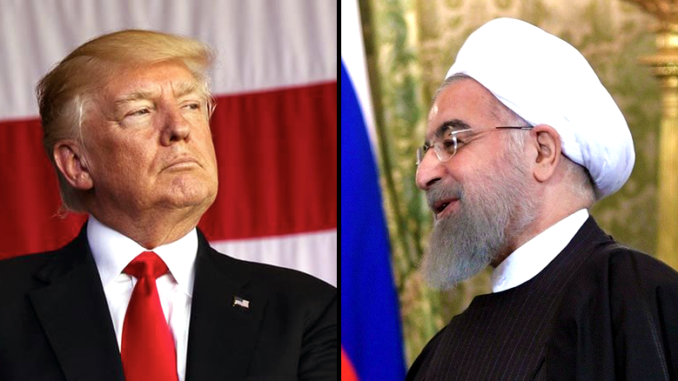
Following the United States’ departure from the Iran Deal, the Trump administration declared on Monday that Iranian sanctions suspended under the deal would officially be reinstated at 12:01 Tuesday morning.
The deal, officially designated the Joint Comprehensive Plan of Action (JCPOA), lifted economic sanctions on Iran provided the country satisfied a number of conditions pertaining to the reduction of its nuclear development program. It was originally signed in 2015 by the United States, European Union, United Kingdom, China, France, Germany, Russia, and Iran; however, President Trump announced the US’s withdrawal from the deal on May 8, 2018, due to what his administration considered insufficient limitations of Iran’s “malign behavior,” including its military support of the Syrian government and militant groups like Hezbollah.
According to BBC News, the sanctions, reimposed via executive order, would target Iran’s energy sector and foreign financial transactions, and would apply to the following in particular:
- The purchase or acquisition of US banknotes by Iran’s government
- Iran’s trade in gold and other precious metals
- Graphite, aluminum, steel, coal, and software used in industrial processes
- Transactions related to the Iranian rial
- Activities relating to Iran’s issuance of sovereign debt
- Iran’s automotive sector
BBC notes that “potentially more damaging” sanctions might be instated on November 5, targeting “Iran’s port operators and energy, shipping, and shipbuilding sectors,” “Iran’s petroleum-related transactions,” and “Transactions by foreign financial institutions with the Central Bank of Iran.”
According to CNN, a senior administration official insisted that “our stated policy has not been regime change, it’s been to modify the Iranian regime’s behavior,” emphasizing that “The President has been very clear none of this has to happen, he will meet with the Iranian leadership anytime” to discuss negotiating another nuclear deal.
Iranian President Hassan Rouhani signaled openness to accepting the White House’s offer, at least on the surface, stating in an interview airing on state television that “I don’t have preconditions. If the US government is willing, let’s start right now. If there is sincerity, Iran has always welcomed dialogue and negotiations.”
In an interview on “The Lead with Jake Tapper,” National Security Advisor John Bolton expressed skepticism over the comments. “Let’s see what really comes of it or whether it’s just more propaganda,” Bolton said, adding that “If the Iranians are really willing to come and talk about all of their malign behavior in the region and around the world, I think they’d find the President willing to do it.”
An anonymous Trump administration official told reporters that the White House was looking to “build a global coalition to counter Iran’s malign activity.”
“Make no mistake about it — we are very intent on using these authorities, we will use them aggressively and we are already seeing a very substantial impact,” the official said, according to NBC News. No further details were provided on which countries the White House hoped to enlist.
Why It Matters
The major factor in the Trump administration’s negotiations with Iran is Europe. As The News Blender has covered in the past, European countries have extensive business ties in place with Iran in light of the JCPOA’s signing, to the tune of billions of dollars. But with the US withdrawing from the deal and reinstating sanctions, these countries must halt their dealings with Iran or face what President Trump described as “severe consequences.”
Though Europe has until now shown a preference towards continuing relations with America over Iran, leaders on Monday said they would fight to preserve the Iran deal and would seek ways to counteract the US sanctions. In a statement signed by the EU High Representative for Foreign Affairs and Security Policy Federica Mogherini and the foreign ministers Jean-Yves Le Drian, Heiko Maas, and Jeremy Hunt, of France, Germany, and the UK respectively, the European guarantors of the deal conveyed their regret for the sanctions and asserted that “The JCPOA is working and delivering on its goal, namely to ensure that the Iranian program remains exclusively peaceful, as confirmed by the International Atomic Energy Agency.”
To this end, the EU is pursuing legislative action in the form of a blocking statute, which would ameliorate the effects of American sanctions on European countries. But as friction between countries builds, there is no guarantee that stronger recourses will not be sought. That certainly would bode ill for worldwide American interests.
Following news of the sanctions, Iranian Foreign Minister Mohammad Javad Zarif responded that the US was becoming “isolated,” asking “Who can believe Trump is serious about talks?”
That question is an important one that our allies and enemies alike will have to answer for themselves in the months and years ahead.
